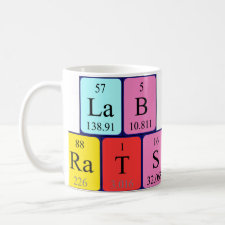
Authors: Li ZZ, Qin CL, Li DM, Hou YZ, Li SB, Sun JJ
Article Title: Molecularly imprinted polymer for specific extraction of hypericin from Hypericum perforatum L. herbal extract.
Publication date: 2014
Journal: Journal of Pharmaceutical and Biomedical Analysis
Volume: 98
Page numbers: 210-220.
DOI: 10.1016/j.jpba.2014.05.031
Alternative URL: http://www.sciencedirect.com/science/article/pii/S0731708514002714
Abstract: The molecularly imprinted polymers (MIPs) were prepared by an oxidation-reduction polymerization system using a non-covalent molecularly imprinting strategy with hypericin as the template, acrylamide as the functional monomer and pentaerythritol triacrylate as the cross-linker in the porogen of acetone. The UV spectrum revealed that a cooperative hydrogen-bonding complex between hypericin and acrylamide might be formed at the ratio of 1:6 in the prepolymerized system. Two classes of the binding sites were produced in the resulting hypericin-imprinted polymer with the dissociation constants of 16.61 μg L-1 and 69.35 μg L-1, and the affinity binding sites of 456.53 μg g-1 and 603.06 μg g-1, respectively. The synthesized MIPs were characterized by scanning electron microscope, thermogravimetric and differential thermal analysis. High-performance liquid chromatography was used to investigate the adsorption and recognition properties of the MIPs. Selective binding of the template molecule was demonstrated in comparison to the analog pseudohypericin. After the Hypericum perforatum L. plant being air dried and finely ground, an extract was prepared by shaking the powder in a methanol-water solution (80:20, v/v), vacuum filtration though a Büchner funnel, liquid-liquid extraction with ethyl ether and ethyl acetate, and evaporating on a rotary evaporator until dry. With the sorbents of the optimized MIPs, a molecularly imprinted solid-phase extraction (MISPE) procedure was developed for enrichment and separation of hypericin from the Hypericum extract in the presence of interfering substances. The selective extraction of hypericin from herbal medicine was achieved with the recovery of 82.30%. The results showed that MISPE can be a useful tool for specific isolation and effective clean-up of target compounds from natural products
Template and target information: hypericin
Author keywords: molecularly imprinted polymer, Solid-phase extraction, Hypericin, pseudohypericin, Hypericum perforatum L.



Join the Society for Molecular Imprinting

New items RSS feed
Sign-up for e-mail updates:
Choose between receiving an occasional newsletter or more frequent e-mail alerts.
Click here to go to the sign-up page.
Is your name elemental or peptidic? Enter your name and find out by clicking either of the buttons below!
Other products you may like:
 MIPdatabase
MIPdatabase









